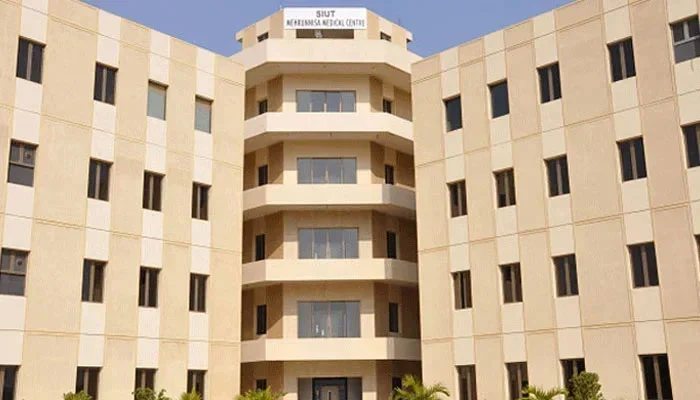Sindh Chief Minister Murad Ali Shah announced on Tuesday that the federal government has allocated Rs9 billion to the provincial government. This substantial funding is designated for the establishment of Sindh Institute of Urology and Transplantation (SIUT) centers in Rahim Yar Khan and Rawalpindi, a move that acknowledges the robust performance of Sindh’s public health institutions.
During a provincial cabinet meeting, the chief executive stated that a portion of these funds would also be utilized for the reconstruction of homes for flood-affected populations in Balochistan and Khyber Pakhtunkhwa.
“Decisions regarding the establishment of Shaheed Zulfikar Ali Bhutto Institute of Science and Technology’s (SZABIST) and IBA institutes will be made at a later stage,” he added during the cabinet session, which was attended by provincial ministers, advisors, special assistants, the Chief Secretary, and relevant secretaries.
Referring to the creation of these new SIUT (Kidney Hospital) facilities, Murad explained that this initiative aims to bolster public health services nationwide, with a particular emphasis on serving the residents of Punjab and the adjacent regions of Sindh and Balochistan.
To support this endeavor, the provincial cabinet has proposed allocating Rs2 billion for the SIUT center in Rahim Yar Khan and Rs1 billion for the SIUT center in Rawalpindi, in addition to an annual operational budget of Rs500 million.
A press release issued today highlighted, “A rigorous monitoring framework will be put in place, encompassing quarterly progress reports, third-party audits, and on-site visits by Sindh government officials to guarantee the judicious utilization of these funds.”
CM Murad expressed optimism that this initiative would significantly enhance Sindh’s national standing, showcasing its dedication to equitable development, provincial generosity, and national solidarity.
Discussing housing reconstruction for flood-affected communities, the chief minister detailed that out of the federal government’s Rs9 billion allocation, Rs2 billion has been earmarked for rebuilding homes in Sohbatpur, Jaffarabad, and Dera Murad Jamali in Balochistan. An additional Rs1 billion has been allocated for Dera Ismail Khan in Khyber Pakhtunkhwa.
“This funding also includes a proposal to increase housing cash grants, addressing the escalating costs of construction materials and transportation in remote areas,” he elaborated.
‘Enhancing Road Safety: New Vehicle Regulations Approved’
Acting on directives from CM Murad, the Sindh cabinet has given in-principle approval to crucial amendments in vehicle-related legislation. These changes are designed to significantly improve road safety and regulatory compliance across the province.
Under the updated regulations, heavy vehicles will now be subject to a registration fee equivalent to 0.5% of their invoice value, an annual tax of Rs1,000, and a transfer fee of Rs2,000, which incorporates charges for a smart card and number plate.
All commercial vehicles operating within Sindh are mandated to possess valid fitness certificates, with non-compliance incurring a fine of Rs10,000. Furthermore, restrictions have been imposed on permits for older vehicles: vehicles exceeding 20 years of age will be prohibited from interprovincial routes, and those older than 25 years will be banned from intercity operations. Penalties will escalate for repeat violations.
To further enhance road safety, the cabinet has implemented a complete ban on substandard rickshaws and loaders.
In terms of manufacturing and assembly, any entity intending to assemble or manufacture engine chassis must acquire a license costing Rs3 million, valid for one year. Annual renewals will cost Rs1 million. Illegal assembly or manufacturing will incur fines of up to Rs1 million.
Additional reforms include mandatory certified pre-licence training of at least 30 hours for Heavy Transport Vehicle (HTV) drivers from government-recognized institutions. The age limit for obtaining an HTV license has been lowered from 24 to 22 years, provided the applicant possesses a minimum of one year of Light Transport Vehicle (LTV) experience.
To streamline enforcement, the government plans to implement an automatic detection system. For example, vehicles parked in no-parking zones will receive Fixed Penalty Notices, either affixed to the vehicle or directly handed to the driver. Fines for unauthorized modifications, such as tinted windows, can reach up to Rs300,000 for repeated violations.
Moreover, the government intends to establish dedicated Traffic Courts to efficiently handle traffic-related offenses.



